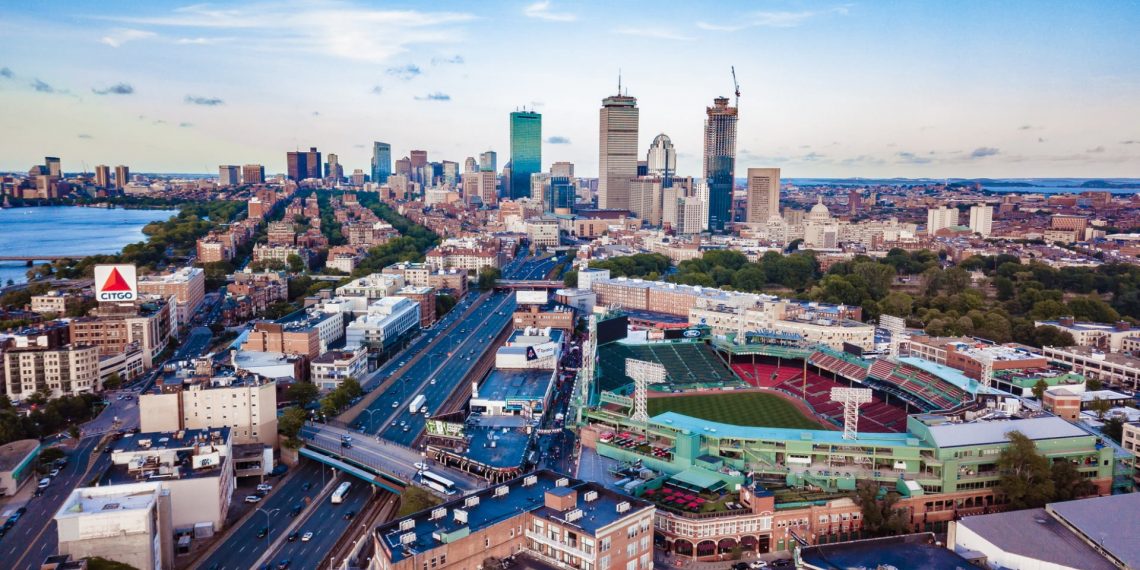What is the cost of living in Boston, Massachusetts?
Boston, Massachusetts is a famous city, known throughout the world for its historical significance and abundance of excellent universities. This charming port city is a vibrant, international city, attracting residents from around the world. So how much does it actually cost to live in Boston?
Rental Prices
Boston has the third highest rental costs in the country. The only cities that cost more than Boston are San Francisco and New York City. If you live in Boston, your monthly rent on average should be around $3,500. It’s important to remember that there has been a significant decrease in rent prices due to the COVID-19 pandemic and the economic consequences.
South Boston is the priciest neighborhood in this city. Right on the water and extremely close to downtown, South Boston has exploded in the past few years and has quickly become the most expensive part of the city. Beacon Hill and Back Bay also have some of the highest rents in the city. If you’re looking for cheaper neighborhoods, check out Mattapan, South Dorchester, and Hyde Park.
When looking for an apartment, make sure to calculate the price of utilities into your monthly rent budget. If you’re living in Boston, you’ll most likely be paying at least $150 a month on various utilities, so make sure not to forget about these additional costs when budgeting your rent.
An easy and effective way to save money on housing is to live with roommates. By splitting the cost of both rent and utilities with one or two people, you’ll be saving money.
Buying Prices
If you’re interested in longer term housing or plan on staying in Boston permanently, buying a home may be the best option for you. It’s important to begin your search early, as the real estate industry in Boston is intense and competitive.
A single family home in Boston averages to over $600,000, which applies to both inner city Boston and the greater Boston area. There are very few neighborhoods in Boston that aren’t in high demand, as different areas attract different people. The price increases with size, condition, and location of home.
Housing prices in Boston are similar to other major cities like Washington D.C. and San Diego. But these cities are much more expensive than the national average. Boston rent costs, for example, are three times higher than the national average.
Transportation
Boston is an incredible walking city, with lots of sidewalks and parks, making it easy to navigate the city by foot. Driving into Boston is less enjoyable.
Street parking is extremely rare in the city and garages are expensive, charging up to a hundred dollars for just a few hours. Some garages offer parking passes, which are priced more reasonably, especially for someone driving in and out of the city frequently.
There is also an abundance of public transportation in Boston, with a metro system and many bus lines. Using public transportation is much cheaper than driving, with tickets only being about $2.
It’s important to consider transportation when planning your move to Boston. If you plan on driving into the city every day, plan where and how you will store your car.
If you take public transportation frequently, look for housing near train or bus stops. Keep in mind that many apartments or homes near train stops are more expensive, due to their close proximity to that public amenity.
Food Expenses
Massachusetts and Boston are expensive places to live, and this is due to more than just high rent prices. Food in Boston is 24% higher than the rest of the country. You’ll be spending a quarter more than you would somewhere else in the country.
The average person in Boston spends about $350 a month on food. This is not including the price of going to restaurants, which can range anywhere from $20 to $100 per person, depending on the venue. These are comparable rates to other cities in the country, like New York City and San Francisco.
Average Salaries for Residents of Boston
Boston is an incredible city that offers a high standard of living. It also has incredible industries that attract professionals from around the world in the fields of technology, finance, business, medicine, and education.
Minimum wage is $12.75 in Boston, higher than the national average. On average, Bostonians earn $32.39 an hour. This is 30% higher than the national average. Because of the high cost of living in Boston, businesses and organizations tend to compensate their workers appropriately.
The average salary in Boston is $77,000 a year. This is comparable to residents of New York City, a similar northeastern city with a comparable cost and quality of living.
Boston’s appeal seems to grow each year. Despite the high costs of living in Boston, residents have an incredibly unique experience in one of the most historical cities in the United States. If you’re seriously considering a move to Boston, make sure do your research to better understand the market you’re entering.


